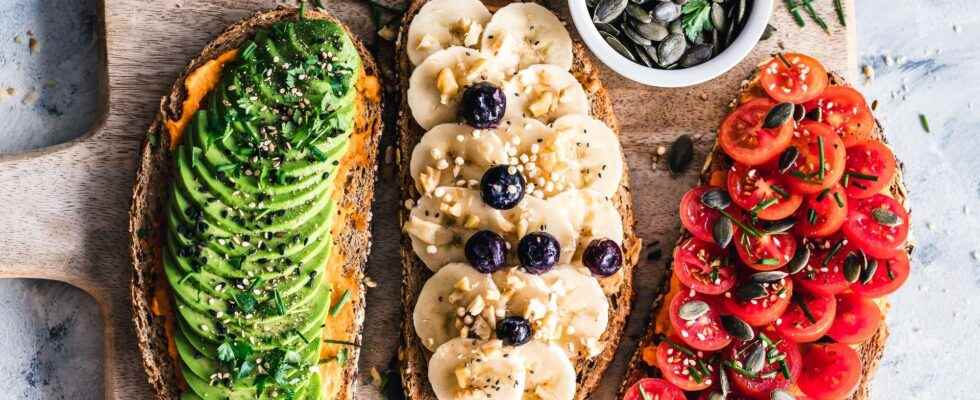Gluten-free lifestyles have become more popular in recent years. But far from being a fad, it is first and foremost an autoimmune disease that penalizes the daily lives of people who suffer from it. But now, finding alternatives that are both healthy and tasty is less complicated than before!
You will also be interested
[EN VIDÉO] The gluten-free diet The gluten-free diet is sometimes adopted without having celiac disease, for weight loss or better overall health. But is it really beneficial?
Why quit gluten? The origin of these discomforts comes from an intestinal disease, chronic and autoimmune, which triggers pain and bloating from the absorption of gluten. What is commonly called ” gluten intolerance is actually called “celiac disease” and causes inflammation due to proteins in wheat, rye, barley and even spelled. On a daily basis, people who suffer from celiac disease are obliged to constantly scrutinize the contents of their plate, even to decline certain invitations for fear that this intestinal malabsorption will lead to stomach aches, cramps and nausea.
Until a few years ago, it was difficult to find alternatives on supermarket shelves. gluten free. Moreover, these products were mainly found in pharmacies. But since celiac disease is increasingly considered by the medical profession, more products make it possible to vary tastes and textures.
Eliminating gluten from the diet is (no longer) so complicated
So it would be enough to eliminate wheat, rye or even barley to no longer be confronted with these pains? For many yes! But what about the little pleasures in life like a good pastry or a slice of crunchy bread?
If you discover how to live gluten free, rest assured, there are many substitutes or tricks to replace it with other flavors.
- Wheat, rye and barley flours can be replaced by their counterparts of rice, corn, cassava starch…
- Gluten-free pasta has made its way to grocery stores while offering ever-changing flavors: brown rice penne, buckwheat tortillions, coral lentil twists…
- The same goes for more gourmet pleasures such as pies and the pizzas. You can make your own dough or choose a ready-to-roll version with corn and potato starch.
Adopt a diet gluten-free paves the way for the imagination to modify certain essential recipes and favor homemade. Because yes, gluten is found in very large quantities in our cupboards since many foods at the heart of our food traditions contain it! The best is homemade so that you can control all the elements that will make up your favorite recipes and thus avoid the painful symptoms and fatigue caused by this malabsorption.
What if you accidentally cracked or ate gluten? To pass these digestive crises as quickly as possible, it is imperative to listen to your body, to stay well hydrated and to rest. You can also avoid lactose and fast sugars temporarily so as not to further irritate the lining of the intestine. For a more soothing effect, place a small hot water bottle on your stomach to enjoy its gentle comforting warmth…
Is there a risk of deficiency?
Yes, but the risk exists as in all somewhat restrictive diets, we would say. To overcome these possible shortcomings, choose substitutes rich in essential nutrients, favor fresh fruit juices to fill up with vitamins and focus on oilseeds to fill the gaps iron needs are some of the most common tricks. Natural dietary supplements may also be recommended by your doctor or naturopath.
And final advice: don’t forget that the mention “organic” is not synonymous with “gluten-free”. It is therefore essential to take a good look at the composition of the products you want to buy at the risk of having unpleasant surprises during digestion…
Interested in what you just read?
Subscribe to the newsletter Health question of the week : our answer to a question you ask yourself (more or less secretly). All our newsletters
